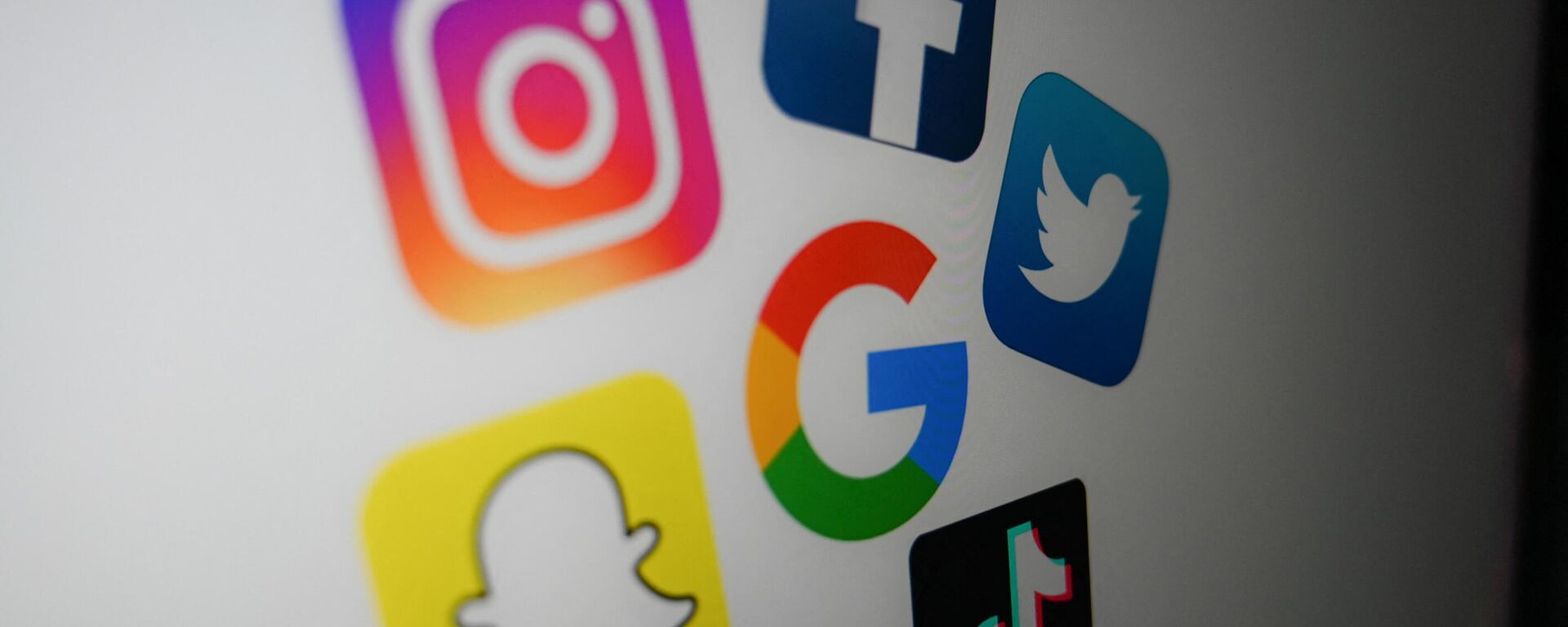https://en.sputniknews.africa/20230803/meta-google-accused-of-promoting-harmful-miracle-cures-for-kenyan-women-1061021589.html
Meta, Google Slammed for Amplifying & Profiting Off 'Miracle Cure' Scams Targeting Kenyan Women
Meta, Google Slammed for Amplifying & Profiting Off 'Miracle Cure' Scams Targeting Kenyan Women
Sputnik Africa
Misinformation and the distribution of hazardous products online has a potentially multi-million target audience in the East African country. According to the... 03.08.2023, Sputnik Africa
2023-08-03T11:43+0200
2023-08-03T11:43+0200
2023-08-03T12:33+0200
sub-saharan africa
media
meta
healthcare
kenya
east africa
google
https://cdn1.img.sputniknews.africa/img/07e7/08/03/1061032616_0:161:3071:1888_1920x0_80_0_0_0798b8f49febab82e7b8b4b2236ced2a.jpg
Silicon Valley-based Western tech giants Meta* and Google permit the placement and promotion of advertisements for unapproved and unsafe treatments for women in Kenya, the country's media group Fumbua, focusing on debunking of misinformation, revealed in a report.According to the organization, the platforms are running ads selling yoni pearls – mesh-wrapped herb balls – to be inserted into the vagina to allegedly treat infections, regulate hormones, enhance fertility and even prevent cancer, "despite the lack of credible scientific research to support such assertions." Fumbua concluded that even though these tech behemoths have policies banning "miracle cures and health misinformation," yoni pearls are heavily advertised on Facebook and Google.Moreover, Facebook's algorithms, as the report said, are often "amplifying this content," and it is letting ads for vaginal magic bullets target Kenyan users.Fumbua added that Google and YouTube are also part of this system, "profiting off ads for vaginal detox products despite the evident health risks." Thus, the companies' futility in regulating such content can have sweeping consequences worldwide, especially when coupled with already existing women's health issues.Speaking about the dossier, Wanjiru Nguhi, the chief researcher, noted that it is particularly "alarming" how easily these advertisements can be found.This is not the first time Meta has faced accusations in the East African nation. In March, the social network giant faced a lawsuit from 43 Kenyan content moderators, who accused the tech company of unfair termination "in retaliation for complaints about working conditions and attempts to form a union."*Meta, Instagram and Facebook are banned in Russia over extremist activities
https://en.sputniknews.africa/20230501/kenyan-content-moderators-form-labor-union-to-address-rights-violations-1058974784.html
kenya
east africa
Sputnik Africa
feedback@sputniknews.com
+74956456601
MIA „Rossiya Segodnya“
2023
Maxim Grishenkin
https://cdn1.img.sputniknews.africa/img/07e7/0a/17/1063018107_0:0:1104:1103_100x100_80_0_0_03090c85a11f5d2e8a19cf1d989443c9.jpg
Maxim Grishenkin
https://cdn1.img.sputniknews.africa/img/07e7/0a/17/1063018107_0:0:1104:1103_100x100_80_0_0_03090c85a11f5d2e8a19cf1d989443c9.jpg
News
en_EN
Sputnik Africa
feedback@sputniknews.com
+74956456601
MIA „Rossiya Segodnya“
Sputnik Africa
feedback@sputniknews.com
+74956456601
MIA „Rossiya Segodnya“
Maxim Grishenkin
https://cdn1.img.sputniknews.africa/img/07e7/0a/17/1063018107_0:0:1104:1103_100x100_80_0_0_03090c85a11f5d2e8a19cf1d989443c9.jpg
media, meta, healthcare, kenya, east africa, google
media, meta, healthcare, kenya, east africa, google
Meta, Google Slammed for Amplifying & Profiting Off 'Miracle Cure' Scams Targeting Kenyan Women
11:43 03.08.2023 (Updated: 12:33 03.08.2023) Misinformation and the distribution of hazardous products online has a potentially multi-million target audience in the East African country. According to the 2023 report on internet use, about 9.25 million Kenyans use Facebook*, 9.44 million use YouTube and 2.2 million people use Instagram*.
Silicon Valley-based Western tech giants Meta* and Google permit the placement and promotion of advertisements for unapproved and unsafe treatments for women in Kenya, the country's media group Fumbua, focusing on debunking of misinformation, revealed in a
report.According to the organization, the platforms are running ads selling yoni pearls – mesh-wrapped herb balls – to be inserted into the vagina to allegedly treat infections, regulate hormones, enhance fertility and even prevent cancer, "despite the lack of credible scientific research to support such assertions."
"Any claims of benefit of such products are not supported by scientific evidence, with medical professionals cautioning against using such products," the report read.
Fumbua concluded that even though these tech behemoths have policies banning "miracle cures and health misinformation," yoni pearls are heavily advertised on Facebook and Google.
Moreover, Facebook's algorithms, as the report said, are often "amplifying this content," and it is letting ads for vaginal magic bullets target Kenyan users.
"Facebook and Instagram, now organized under the parent company Meta, have become key conduits for promoting yoni-related products and peddling misinformation about them," the report explained.
Fumbua added that Google and YouTube are also
part of this system, "profiting off ads for vaginal detox products despite the evident health risks."
Thus, the companies' futility in regulating such content can have sweeping consequences worldwide, especially when coupled with already existing women's health issues.
"In the case of Kenya, the companies’ failures pose a serious threat to women’s health in a country already struggling with poverty, high rates of maternal and infant mortality, and infectious diseases like HIV and tuberculosis," the report read.
Speaking about the dossier, Wanjiru Nguhi, the chief researcher, noted that it is particularly "alarming" how easily these advertisements can be found.
"People are not just able to sell things that are harmful, but to do so publicly and even pay for these adverts to go viral. There’s an audacious impunity about it," Nguhi said.
This is not the first time
Meta has faced accusations in the East African nation. In March, the social network giant faced a lawsuit from 43 Kenyan content moderators, who accused the tech company of unfair termination "in retaliation for complaints about working conditions and attempts to form a union."
*Meta, Instagram and Facebook are banned in Russia over extremist activities




